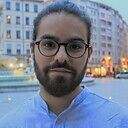-
09:15 UTC
● Keynote by Wouter Veldhuis with Q&A
Keynote by Wouter Veldhuis followed by live Q&A (at ~09:45 UTC).
-
11:00 UTC
● Keynote by Klaus Maier-Hein with Q&A (video)
Keynote by Klaus Maier-Hein followed by live Q&A (at ~11:45 UTC).
About the MICCAI Hackathon
MICCAI has encountered tremendous growth over the last years regarding the size of the community, and the success and number of methods. Despite this growth, MICCAI ideas rarely find their way to the clinics. The cycle of the ideas and methods often ends with the publication at the conference, as also discussed at the RSNA-MICCAI panel at MICCAI 2020. To not lose sight of the ultimate goal, which is the improvement of healthcare, we think it is worthwhile discussing how to bridge this gap to the clinics as a community. To this end, we organize the second edition of the MICCAI Hackathon in a two-stage format consisting of a kick-off on Monday, September 27, 2021 at the satellite events of the virtual MICCAI 2021 conference and a virtual hackathon weekend on October 23/24, 2021.
The aim of the MICCAI Hackathon is to raise awareness to the translational challenges in the MICCAI community. The event should be seen as discussion-driven rather than solution-driven; let's discuss how we could approach these challenges. Therefore, the outcome of the hackathon is difficult to estimate. Ideally, the MICCAI Hackathon raises the awareness that we, as a community, should collaborate and listen to the medical stakeholders. Yet, it is expected that some contributions are at the level of a usable draft (e.g., a document, guidelines, a piece of software). The contributions are free to use (open source) and participants might decide to follow up on their ideas. From the personal perspective of participants, a likely outcome is that they get to know new people, can network, and future collaborations could be formed.
The MICCAI Hackathon adheres to the typical format of a hackathon: participants gather together, receive input from keynote speakers, work in teams or individually to find solutions to specific tasks, while being supervised by mentors, and finally present their contributions at the end of the hackathon. We are convinced that the format of a hackathon is an opportunity for the MICCAI community to exchange, discuss, reflect, and possibly come up with ideas and suggestions on how our community could bridge the gap to the clinics and move MICCAI methods towards clinical application. Have a look at the program and the detailed information.

Tasks
The topic of the MICCAI Hackathon involves “How can we bridge the gap to the clinics and move MICCAI methods towards clinical application?” During the hackathon weekend, participants will work on tasks related to this topic. Check the tasks below and have a look at the available rescources. The tasks will also be introduced in short presentations during the kick-off at the satellite event at the MICCAI conference.
Task 1 - Deploy your MICCAI method to the clinics
Deploy your MICCAI method as a "shadow mode" application in the clinics by integrating it with the Picture Archiving and Communication System (PACS). Your method will run at your radiology department on the Kaapana platform for evaluating its clinical applicability.
- Get familiar with Kaapana and apply the nnU-Net on exemplary data.
- Containerize your MICCAI method for inference such that it can be used within Kaapana.
- Write a directed acyclic graph (DAG) to integrate your container for inference into Kaapana.
- Write a directed acyclic graph (DAG) for training your model in Kaapana.
- Draft a tutorial/manual on the usage of Kaapana.
- Investigate the anonymization of DICOM images.
Task 2 - Towards clinically-oriented evaluation
MICCAI methods are typically evaluated on specific metrics for the task at hand (e.g., Dice coefficient for segmentation) rather than actual clinical endpoints. Such evaluation might not suffice to show, or even overestimate, the benefit for the clinical problem at hand, as for instance, the Dice coefficient is rarely a clinically relevant outcome. Bridging the gap also means adapting the way we report results.
- How can we show that a proposed method not only achieves SOTA with respect to the standard metric but also works as intended in a clinical setting?
- How can we set up proper double-blind randomized control trials where various unwanted human-AI factors (lacking trust, etc.) are not changing the results.
- Propose ways to make the evaluation scenario more realistic.
- Demonstrate possible limitations/shortcomings (or even threats) of evaluations typically performed for MICCAI methods.
- How would you describe your method if you would not “sell” it for publication but describe it for use in clinics, and you would be responsible for its successful application?
Task 3 - Assess brittleness of MICCAI papers in the clinical setting
Analyze how a MICCAI method behaves in a clinical-like setting with realistic out-of-distribution cases and/or clinically realistic adversarial attacks.
- Identify possible sources of error when using a MICCAI model in the clinics (e.g., different scanner types, different target populations).
- Select a problem and model you will work on (e.g., from one of the MICCAI challenges).
- Investigate the generation of clinically realistic out-of-distribution cases (e.g., by trying to mimic a new scanner type or by generating extreme cases, different image resolutions). Can you implement a library with methods for generating out-of-distribution cases?
- What are the conclusions of your experiments?
Task 4 - Identify safety threats in medical decision support systems
How can we guarantee the safety of medical decision support systems? Are such systems robust to adversarial attacks, could we deploy them to the cloud? What could be issues of federated and continuous learning scenarios?
- Identify potential vulnerabilities for adversarial attacks when a MICCAI model is deployed to the clinics (e.g., cloud PACS, online learning).
- Exploit vulnerabilities in the pipeline by simple examples (e.g., noise or renaming of files in open-source DICOM library). You could also mimic a federated learning scenario and introduce simple perturbations to show how easy it is to attack the systems.
- Report results and conclusions.
Task 5 - Increase the consistency and quality of annotations
Annotations in medical imaging are extremely difficult to get and also very challenging to keep consistent across multiple annotators. How could we increase the consistency and quality of annotations?
- Discuss and summarize the challenges of annotation policy standardization across multiple annotators in the context of images of cells.
- Discuss how to increase the annotation quality without extensive training and years of experience.
- Run an experiment and produce a proof-of-concept (on the provided cell data).
- Annotation fatigue might influence the annotation quality. Can we detect the fatigue by mouse, eye tracking (cf. fatigue detection in car drivers), or something else? Implement a simple fatigue detection system on an annotation tool (e.g., ITK-SNAP).
Task 6 - Educate along the gap
People on the other side of the gap might have different perceptions about the capabilities of MICCAI methods and how to bridge the gap. Identify and compile educational material for the people on the other side of the gap (clinicians or MICCAI researchers) to prevent misunderstandings and false expectations when translating MICCAI methods to a clinical (or clinical-like) setting.
For MICCAI researchers:
- Try to identify the needs of clinicians with respect to MICCAI methods. How would you convince the physician at your local hospital to collaborate with you?
- Compile instruction material for clinicians that explains the principles of AI methods such that it could be used during a discussion with clinicians. For instance, the material should answer questions such as: What is the general principle? What is required? What are the limitations? What are threats?
- Imagine you are responsible for a method that will be translated to the clinics and you need to write a description about it. Identify and discuss the differences between such a description and a typical MICCAI paper.
For clinicians:
- List the expectations you have in MICCAI methods (or automated/AI methods in general).
- Identify the potential of AI and automated methods in the clinics.
- Identify the gaps between MICCAI methods and the clinical needs.
- Propose approaches to bridge the gap.
Task 7 - Analyze the clinical problems addressed by MICCAI papers
Based on the data from previous MICCAI editions, extract as much information as possible on the type of clinical problems addressed and how this evolved over time.
- Collect longitudinal statistics of MICCAI papers from the proceedings.
- Analyze and illustrate the statistics. For instance try to answer questions such as: what is the variety of tasks and clinical problems addressed by MICCAI papers? Can you observe a change over time? How diverse are the contributions?
- Collect further statistics on a certain task you identified (how many sites, size of cohorts, ...).
- Discuss your findings and propose measures where necessary.
Bonus task - Do It Yourself
Do you have your own task in mind? Then do it yourself (DIY)! Simply work on your own data/problem or use one of our suggested datasets. Team up with others who might be interested in exploring a dataset and some hacking. Note that you will not have dedicated mentors for support available.
You could work on one of the datasets freely available at The Cancer Imaging Archive (TCIA). Some TCIA datasets that come with data beyond medical images, and, therefore, might be closer to a clinical setting, can be found in the resources.
Propose a task
You are welcome to submit a task. This which is free of any obligations. If you are unsure whether your idea fits as a task, contact the organizers such that we can discuss informally.
Keynote speakers
Two keynote speakers will share their insights on how to bridge the gap to the clinics at the kick-off on September 27 at the satellite events of the virtual MICCAI conference.

Dr. Wouter Veldhuis
Radiologist, Co-founder and Clinical Technical Lead of Quantib-U, University Medical Center Utrecht, The Netherlands
Title: Bridging the gap to the clinics: Implementing AI in a clinical PACS... a bridge too far...? or too many bridges?
He is the initiator of IMAGR, the image analytics infrastructure that brings deep learning algorithms directly into the clinical workflow at the UMC Utrecht. As a medical imaging researcher, you may find use for his DICOManonymizer or DICOMconverter apps or extend your domain knowledge using any of the apps on doRadiology.com. The keynote will present the rationale for a vendor‑neutral AI deployment infrastructure (VNAI), its current status, and how it is being used at UMC Utrecht.

Prof. Dr. Klaus Maier-Hein
Head of Medical Imaging Computing, Deutsches Krebsforschungszentrum (DKFZ), Germany
Title: MICCAI to Market?
He is the principal investigator of the famous nnU-Net and the joint imaging platform (JIP) for federated data analytics - also known as the kaapana platform. The JIP aims at establishing a technical infrastructure that enables modern and distributed imaging research within the German Cancer Consortium (DKTK). It is currently being deployed at several hospitals in Germany. The keynote will discuss the development and deployment of the JIP, including demonstrations!
(VIDEO)
Mentors
Mentors will provide guidance, feedback, and inspiration to the hackathon participants during the virtual hackathon weekend.

Miguel José Monteiro
Mojo Diagnostics

Klaus Kades
DKFZ

Jonas Scherer
DKFZ

Philipp Schader
DKFZ

Christian Baumgartner
University of Tübingen

Sailesh Conjeti
Siemens Healthineers

Richard McKinley
University Hospital of Bern
Program
The MICCAI Hackathon happens on two disjoint dates: a virtual kick-off as a half-day satellite event on September 27 at the MICCAI conference and a virtual hackathon weekend on October 23/24.
-
Hackathon weekend, frist day
Saturday, October 23, 202109:00 UTC
● Welcome and FAQ
Opening of the hackathon weekend with information and the possibility to ask questions. The tasks and mentors are briefly reintroduced.
-
09:30 UTC
● Final team formation
The participants are assigned to teams definitely. Participants start working on their tasks.
-
10:00 UTC
● Mentoring session task 6
The participants may interact with Richard McKinley (30 minutes).
-
10:15 UTC
● Mentoring session task 3 & 4
The participants may interact with Sailesh Conjeti (30 minutes).
-
10:30 UTC
● Mentoring session task 5
The participants may interact with Miguel José Monteiro (30 minutes).
-
11:00 UTC
● Mentoring session task 1
The participants may interact with Klaus Kades (30 minutes).
-
11:30 UTC
● Mentoring session task 2
The participants may interact with Christian Baumgartner (30 minutes).
-
14:30 UTC
● Mentoring session task 1
The participants may interact with Klaus Kades (30 minutes).
-
14:45 UTC
● Mentoring session task 3 & 4
The participants may interact with Sailesh Conjeti (30 minutes).
-
15:00 UTC
● Mentoring session task 2
The participants may interact with Christian Baumgartner (30 minutes).
-
15:00 UTC
● Mentoring session task 6
The participants may interact with Richard McKinley (30 minutes).
-
15:30 UTC
● Mentoring session task 5
The participants may interact with Miguel José Monteiro (30 minutes).
-
18:00 UTC
● End of the first day
Quick gathering for the official end of the first day. Informal chatting among the participants; grab a beer! Of course, participants may continue to work on their tasks over the night.
-
Hackathon weekend, second day
Sunday, October 24, 202109:00 UTC
● Gathering and FAQ
Gathering of the participants for the second day. Information on the presentations at the end of the hackathon. Quick discussion on open questions.
-
09:15 UTC
● Mentoring session task 6
The participants may interact with Richard McKinley (30 minutes).
-
10:00 UTC
● Mentoring session task 3 & 4
The participants may interact with Sailesh Conjeti (30 minutes).
-
11:00 UTC
● Mentoring session task 1
The participants may interact with Klaus Kades (30 minutes).
-
11:15 UTC
● Mentoring session task 5
The participants may interact with Miguel José Monteiro (30 minutes).
-
11:30 UTC
● Mentoring session task 2
The participants may interact with Christian Baumgartner (30 minutes).
-
17:00 UTC
● Presentations of contributions
The participants present their contributions in a short presentation. The presentations are followed by an open discussion.
-
17:55 UTC
● Award ceremony
Awards will be given to the participants.
-
18:00 UTC
● End of the MICCAI Hackathon
Official end of the MICCAI Hackathon. The organizers shortly wrap-up the event.
Details
If something is not covered by the information below, please contact us
Participation
- Who can participate? Everyone. The more diverse the better. So, it does not matter whether you are a clinician, a researcher, an undergraduate student, a postdoc, or a professor.
- What do I do as participant? You will work on a task you choose from a set of tasks during the hackathon weekend. Mentors will provide feedback and guidance to you in dedicated mentoring sessions. You will shortly present your contribution at the end of the MICCAI Hackathon.
- Can I participate individually? Yes, working individually on a task is possible, although you would miss the chance to meet new people.
- Can we participate as a preformed team? Yes. To do so, each member needs to fill in the same team name in the registration form.
Registration
- Why do I need to register for the hackathon? A registration (here) is required to facilitate the communication between the organizers and the participants.
- Is a hackathon registration binding? No, you can unregister until the start of the hackathon weekend on October 23.
- Until when can I register for the hackathon? Registration for the MICCAI Hackathon will be open until the hackathon weekend on the October 23 at 09:30 UTC.
- Can I update my registration? Yes, you can always change your registration such as joining a preformed team. Your registration can be updated through the link in the welcome e-mail. Keep in mind that this might affect other people (e.g., switching a team)!
- Why do I need to register for the kick-off at the satellite event day? Attending the kick-off at the satellite event on September 27 requires a registration for the satellite event day of the MICCAI conference as the MICCAI Hackathon is an official satellite event.
- Is it mandatory to attend the kick-off at the satellite event to participate? No, you can participate at the hackathon weekend without attending the kick-off at the satellite event day. All relevant material will be made publicly available shortly after the September 27.
- Does the hackaton weekend imply additional fees? No, the participation in the MICCAI Hackathon is free of charge. However, as the MICCAI Hackathon is an official satellite event at the MICCAI conference, attending the kick-off at the half-day satellite event on September 27 underlies the registration fees of the satellite event day.
Organization
- Can I work on my own task? Yes, as long as it is related to the topic of the hackathon. If you want, you can propose a task.
- Can I work on multiple task? Yes, you can combine the ideas of several tasks to form a new task.
- Can I start working on the task before the hackathon weekend? Sure, as soon as you are matched to a team (if you desire this) you can start hacking.
- How are the teams formed/matched? Participants that select to be matched to a team will be brought together according to their task preferences, i.e., a matching based on common interest in a task.
- When are the teams formed/matched? We will start forming the teams approximately one week after the kick-off at the satellite event day and end, at last, on October 23 at 09:30 UTC (for those who register late).
- When will the data be available? All relevant material, including a recording of the session, will be made publicly available shortly after the September 27.
- Do I need to choose a mentor? No, mentors get assigned to teams based on the task.
Format
- What platform is used for the hackathon? The kick-off at the satellite event on September 27 will happen on the official platform of the MICCAI conference. The platform for the virtual hackathon weekend will be Discord with Zoom for presentations.
- What does the award consist of? The award consists of Amazon vouchers sponsered by the Center for Artificial Intelligence in Medicine (CAIM), University of Bern. The first prize contribution will receive a voucher valued 500 USD. In case of eight or more contributions, a second (300 USD) and third (200 USD) place prize will also be awarded.
- Who gets awarded? Four independent judges will grade the contributions during the presentations of the contributions. The grading involves three aspects: creativity, applicability, and estimated effort; each graded from 1 (worst) to 5 (best). The best contribution(s) will win an award.
- How do the presentations look like? The presentations consist of a 5 minute recording of your outcome in which you should promote your idea/finding/solution.
- Will everything be publicly available? We encorage participants to open source their outcomes. Final presentations, keynotes, and all provided materials will be available. Mentoring sessions will not be recorded.
- The timezone is suboptimal for me, what can I do? You are free to work on your task whenever you like, but try to benefit from the interactions with your mentor and your teammates.
General
- What happens with all the contributions at the end of the hackathon? We might summarize the outcome in a white paper as in the last edition of the MICCAI Hackathon.
- Who has the rights on the outcomes? The outcome is free to use (open source) and participants as well as mentors might decide to follow up on their ideas.
- Is there a template for the presentation? The Google Slides template of the MICCAI Hackathon is available here.
- Is the MICCAI Hackathon a regularly occuring event? Yes. It's already the second edition and we aim at having it recurring. Contact us if you have ideas for the next edition or are interested to help organizing.
Organizing committee

Fabian Balsiger
Postdoc
University Hospital of Bern
Switzerland

Alain Jungo
Postdoc
University of Bern
Switzerland

Wilson Silva
PhD student
INESC TEC and
University of Porto, Portugal

Georg Langs
Professor
Medical University of Vienna
Austria
Sponsors
We are grateful for the support by our sponsors.
If you also want to support the MICCAI Hackathon,
please
contact us!
Contact
Do not hesitate to get in contact with us!



